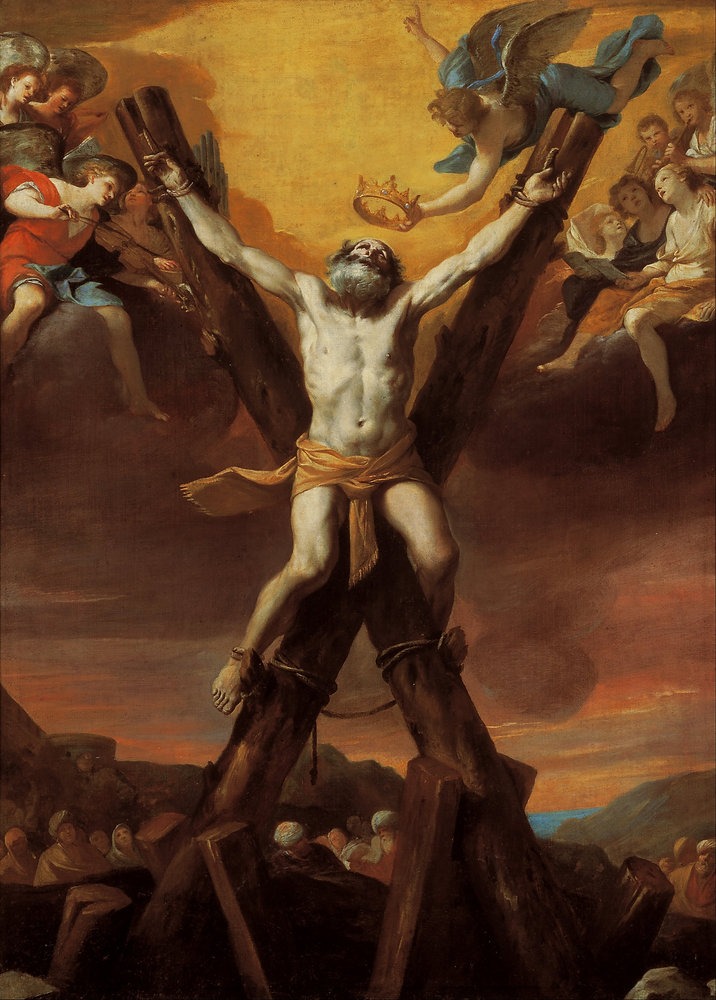St. Andrew the Apostle
Discover the inspiring story of St. Andrew the Apostle. Learn about his life as the first-called disciple, his unwavering faith, missionary zeal, and martyrdom on the cross.
12/1/2025
Introduction
On 30 November, the Church celebrates the Feast of St Andrew the Apostle, as marked in the 1962 Traditional Catholic Calendar. (L.R.) This day invites the faithful to reflect on the life and mission of a disciple who followed Christ, brought others to Him, and lived a life of humble service—offering us a model for living virtuously and faithfully in our own times.
Who was St. Andrew?
According to the Gospel accounts, Andrew was born in the village of Bethsaida on the Sea of Galilee. He was a fisherman by trade and the brother of Simon (Peter).
In the Gospel of John, Andrew is described as first a disciple of John the Baptist, who then heard Jesus, followed Him, and introduced his brother Simon to Him:
“We have found the Messiah.” (John 1:41)
He is sometimes called the “First-Called” (Protokletos) because he is the first in the Gospels to follow Christ and bring another to Him.
While the New Testament gives only limited details of Andrew’s later ministry, tradition holds that he preached in Greece and the Black Sea region and suffered martyrdom in Patras, Greece, on an X-shaped cross.
Feast Day in the 1962 Calendar
In the 1962 Traditional Catholic (‘Tridentine’) Calendar, 30 November is listed as the Feast of St Andrew the Apostle. The liturgical colour for an Apostle-Martyr is red—signifying their witness of blood and the gift of the Holy Spirit.
This feast day invites us to recall not only the historical person of Andrew but the spiritual significance of his calling, his example, and his mission—a call shared by all baptized Christians.
Lessons from St Andrew’s Life for a Virtuous Catholic Life
Prompt Response to Christ’s Call
When Jesus said, “Come after me, and I will make you fishers of men” (Mark 1:17), Andrew and his brother Peter left their nets at once and followed Him.
In our lives, we are called to respond promptly when Christ invites us—to prayer, to service, to love. Andrew’s readiness teaches us not to delay.
Humble Service and Bringing Others to Christ
Rather than seek the limelight, Andrew’s role is often one of introduction—he brings his brother, Simon, to Jesus.
Authentic discipleship often means helping others meet Christ. We can imitate Andrew by quietly pointing others toward the Lord through our words and actions.
Courage in Witness, Even to Martyrdom
Tradition holds that Andrew accepted martyrdom rather than renounce Christ. His cross-shaped X (crux decussata) became a Christian symbol of humility and suffering for the faith.
Living a faithful Catholic life may involve crosses—sacrifices, misunderstandings, trials. Andrew’s example encourages perseverance, courage, and trust.
Fidelity to the Mission of the Church
As one of the Twelve Apostles, Andrew contributed to the foundation of the Church. The Church honours him because he lived in personal intimacy with Christ and helped build up the Body of Christ.
We too are part of the Church’s mission. Whether through parish life, family, work, or daily encounter, we share in the apostolic outreach by living authentically and sharing the Gospel.
How to Celebrate the Feast in a Catholic Life
Attend Mass (in your rite) and reflect on the readings and prayers for the Feast of St Andrew.
Use the colour red in your remembrance (for example in a candle or decoration) to signify his martyrdom and apostolic mission.
Pray specifically for the virtue of promptness in responding to Christ: ask — “Lord, do I follow You as quickly as Andrew did?”
Consider an “Andrew apostolate” — bringing one friend, family member or co-worker closer to Christ by word or invitation.
Begin or renew a devotion to the Cross, remembering how Andrew embraced the cross of Christ in his life.
Conclusion
The Feast of St Andrew the Apostle on 30 November offers more than a memory of a distant saint: it offers a living invitation. Andrew’s life speaks to each of us: be ready, be humble, be courageous, be faithful. In the quiet of our own daily rhythms—work, family, parish, neighbour—we are called to follow Christ, to lead others to Him, and to endure the cross with hope.
May St Andrew the Apostle, pray for us, that we may live virtuous and faithful Catholic lives, rooted in Christ, enduring in love, ready to bear witness.


Contact
Phone
info@mostholytrinity.org
© 2026. All rights reserved.